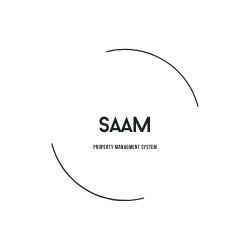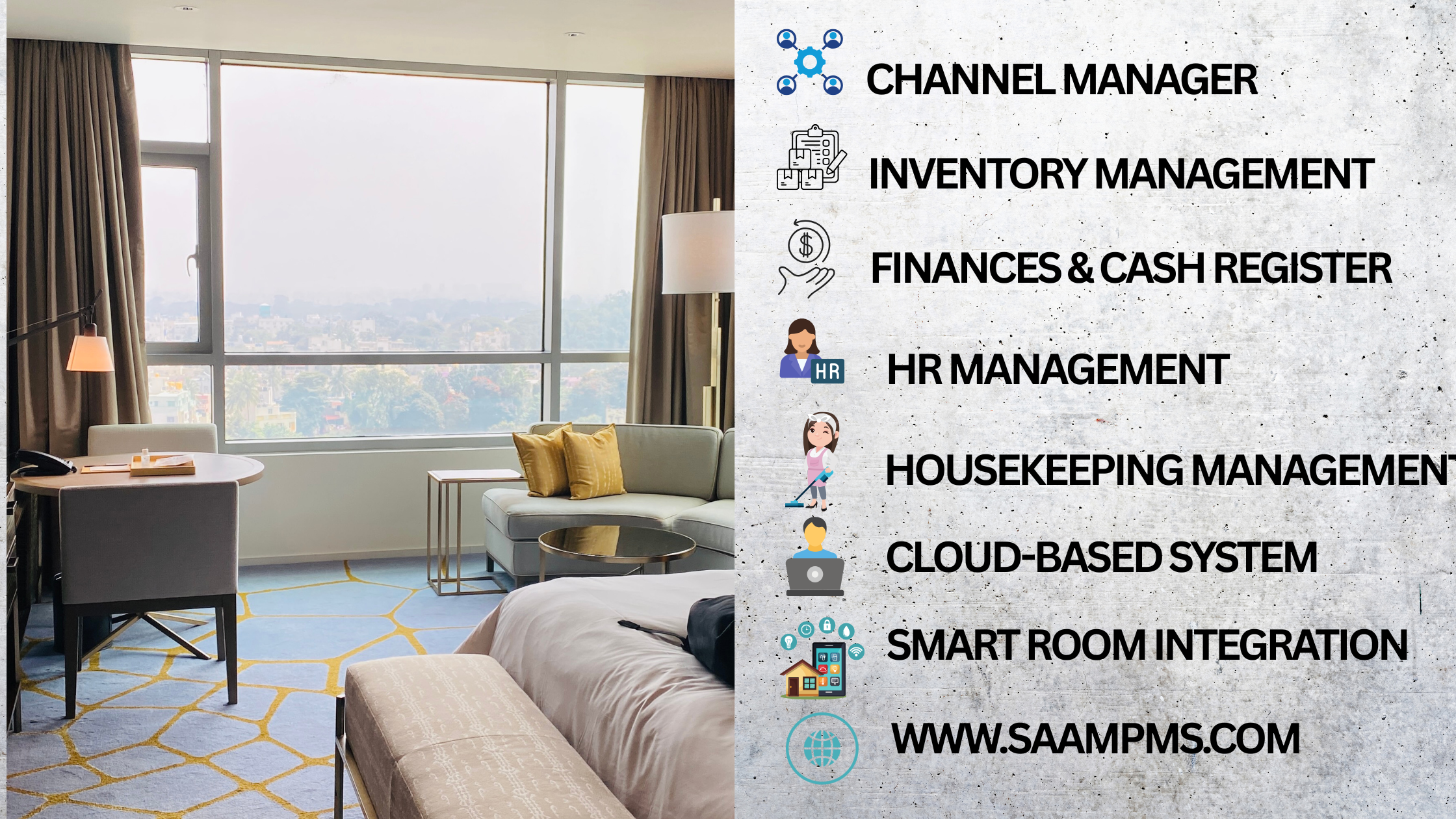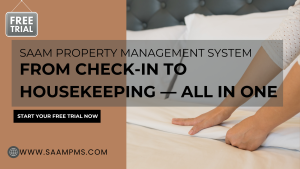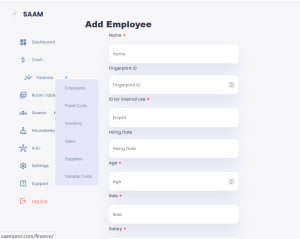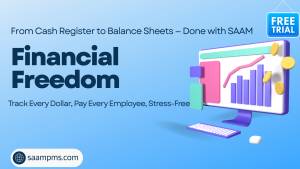Choosing the Right Hotel Management System
Choosing the Right Hotel Management System
Hotel management software is a comprehensive solution designed to assist hoteliers in managing their day-to-day operations. This software typically includes a variety of tools that help with reservations, billing, guest check-in/check-out, housekeeping, and more. By automating these tasks, hotel management systems can save time and reduce errors. Moreover, a good system provides a centralized platform that integrates various functions, allowing for smoother communication between departments and reducing the chances of miscommunication or data mismanagement.
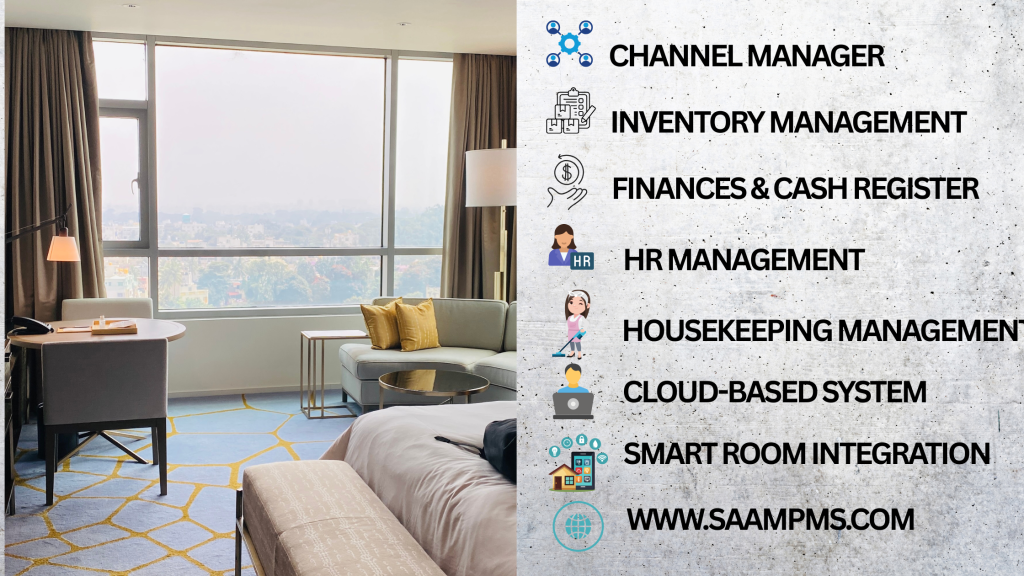
Key Features to Look For
When selecting a hotel management system, it’s important to consider the features that will best support your business. Here are some key features to look for:
- Reservation System: A robust reservation system is at the heart of any hotel management software. It should enable guests to book rooms easily, either through your website or third-party booking platforms. It should also offer features such as real-time availability, automated confirmation emails, and the ability to handle cancellations and modifications seamlessly.
- Property Management: This feature helps you manage your hotel’s day-to-day operations, including room assignments, guest check-ins, and check-outs. It should provide real-time updates on room availability and occupancy rates. Additionally, a strong property management module can offer insights into room turnover times and assist in coordinating with housekeeping for efficient room preparation.
- Integrated Billing and Invoicing: Your software should streamline billing and invoicing, ensuring that guests can settle their accounts quickly and accurately. This includes generating detailed invoices, processing payments in multiple currencies, and integrating with payment gateways for smooth transactions.
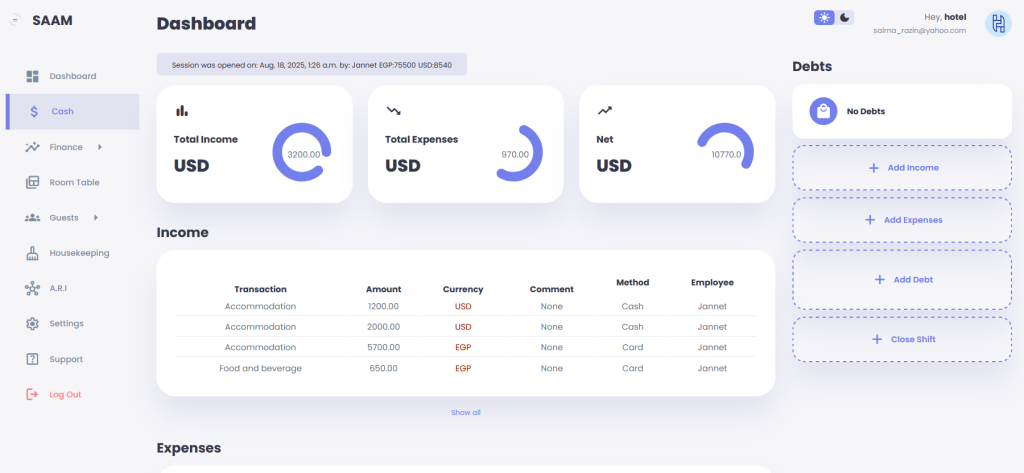
- Housekeeping Management: This tool helps coordinate housekeeping tasks, ensuring that rooms are cleaned and prepared for incoming guests efficiently. It should allow for the scheduling of tasks, tracking of room status, and communication between housekeeping staff and the front desk to minimize delays and ensure guest satisfaction.
- Reporting and Analytics: Access to detailed reports and analytics can help you make informed decisions about pricing, marketing strategies, and operational improvements. Look for software that offers customizable reports and dashboards that can highlight trends, forecast demand, and identify areas for cost savings.
- Customer Relationship Management (CRM): A CRM tool can help you build and maintain relationships with guests by storing their preferences and history, allowing for personalized service. This feature can also facilitate targeted marketing campaigns, loyalty programs, and guest feedback collection to enhance guest satisfaction and retention.
Evaluating Different Options
With so many hotel management systems on the market, choosing the right one can be overwhelming. Here are some steps to help you evaluate different options:
- Assess Your Needs: Before you start comparing systems, take stock of your hotel’s specific needs. Consider factors such as the size of your property, the number of rooms, your budget, and any unique requirements you may have. Understanding your operational challenges and strategic goals can guide you in identifying a system that aligns with your business objectives.
- Compare Features: Once you know what you need, start comparing the features of different systems. Make a list of must-have features and nice-to-have features, and prioritize accordingly. Don’t forget to consider the scalability of the software as your hotel grows. Also, examine how each system addresses specific pain points, such as peak season demand management or multi-property management if applicable.
- Read Reviews: Look for reviews and testimonials from other hoteliers who have used the systems you’re considering. Their experiences can provide valuable insights into the software’s strengths and weaknesses. Pay attention to feedback on customer support, ease of use, and any recurring technical issues that users have reported.
- Test the Software: Most software providers offer demos or free trials of their products. Take advantage of these opportunities to test the software’s functionality and user-friendliness. Involve your staff in the evaluation process to ensure the system meets their needs as well. Testing the software in a real-world environment can reveal potential challenges and help you gauge its fit with your operational workflow.
- Check Integration Capabilities: Ensure that the software you choose can integrate with other systems you currently use, such as accounting software, point-of-sale systems, or third-party booking platforms. Seamless integration can save you time and prevent data discrepancies. Evaluate the ease of integration and the level of technical support available to assist with any integration challenges.
Implementation Tips
Once you’ve chosen the right hotel management system for your property, it’s time to implement it. Here are some tips for a smooth transition:
- Develop an Implementation Plan: Create a detailed implementation plan that outlines timelines, responsibilities, and key milestones. Ensure that your staff is informed and involved in the process from the beginning. Clear communication about the objectives and benefits of the new system can help in gaining buy-in and minimizing resistance to change.
- Provide Comprehensive Training: Offer training for all staff members who will be using the new system. This may include workshops, online tutorials, or one-on-one sessions. Ensure that everyone is comfortable with the software before going live. Ongoing training and support can also
Why SAAM Property Management System?
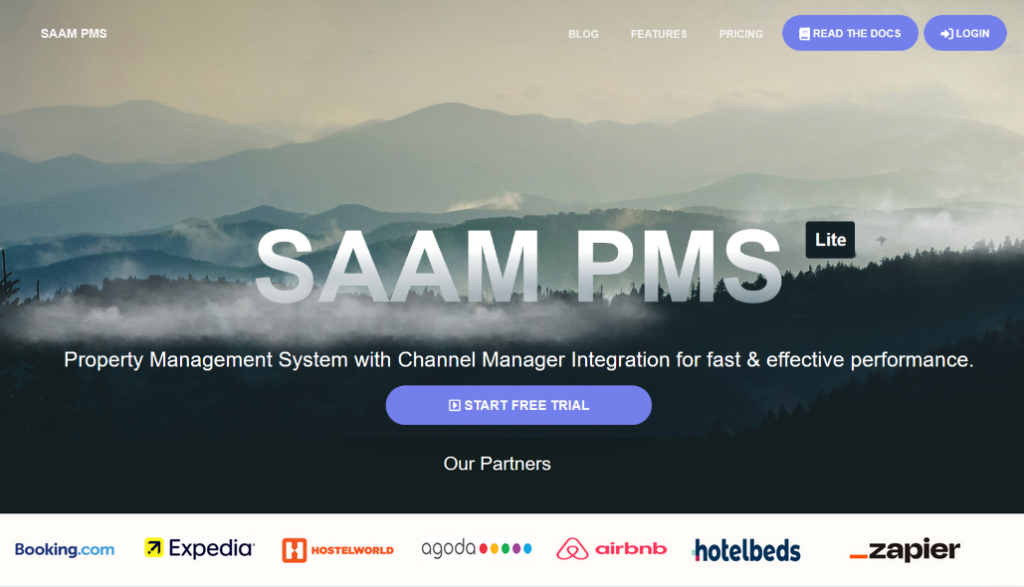
SAAM has all features you will look for to perfectly manage your property whether it is small Airbnb unit or a five stares hotel with surprisingly affordable prices that will cover all your needs :
- Channel Management: Connects to various online travel agencies (OTAs) and other distribution channels to manage inventory and bookings across different platforms.
- Online Booking Engine: Allows guests to book rooms directly on the hotel’s website, displaying real-time availability and rates.
- Reservation Management: Handles bookings, modifications, cancellations
- Guest Profiles: Stores guest information and preferences for personalized service and repeat business.
- Check-in/Check-out: Streamlines the process of guest arrival and departure.
- Communication: Facilitates communication with guests through various channels.
- Loyalty Programs: Integrates with loyalty programs to manage rewards and special offers.
- Front disk operations : Manages room assignments, guest requests, and other front desk tasks.
- House keeping management : Tracks room cleaning status and schedules housekeeping tasks.
- Inventory Management: Manages room availability, amenities, and other resources.
- Reporting and Analytics: Generates reports on bookings, revenue, occupancy, and other key performance indicators.
- Integration with Other Systems: Connects with channel managers,Zapier, and other software systems.
- Multi-Property Support: Enables management of multiple hotels or properties from a single system.
- Finances and Human Resources Management :cash registration with your chosen authorized employees , payroll and attendance tracking
- Free Trail :which allow you to really try all the features and make sure it covers all your need
For more articles https://blog.saampms.com/
Or visit https://saampms.com/
